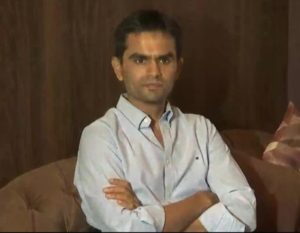
New Delhi: In a major development in the drugs-on-cruise case, the Delhi team of the Narcotics Control Bureau (NCB) will now take over the investigation.
Mutha Ashok Jain, Deputy DG of NCB’s South-Western Region, on Friday informed that a total of their 6 cases will now be investigated by Delhi teams of NCB, including the drugs-on-cruise case and 5 other cases. It was an administrative decision, he said.
Meanwhile, talking about the development, NCB Zonal Director Sameer Wankhede told news agency ANI: “I have not been removed from the investigation. It was my writ petition in court that the matter be probed by a central agency. So Aryan case and Sameer Khan case are being probed by Delhi NCB’s SIT. It is coordination between NCB teams of Delhi and Mumbai”.
“A team of Delhi NCB is arriving in Mumbai tomorrow after the decision that 6 cases of Mumbai zone, including Aryan Khan’s case and 5 other cases, will now be investigated by them,” he informed.
Early inputs had suggested that Sameer Wankhede will report to NCB’s Delhi Office and Sanjay Singh will take charge as the Mumbai Zonal Director.
The cases pertaining to the Mumbai cruise raid, Nawab Malik’s son-in-law Sameer Khan and others will be investigated by IG rank officers, the inputs mentioned.
An NCB team led by Sameer Wankhede in October allegedly seized drugs onboard a cruise ship off the Mumbai coast following which superstar Shah Rukh Khan’s son Aryan Khan and some others were arrested on October 3.
In a major twist, NCB’s independent witness Prabhakar Sail had claimed that Rs 25 crore was demanded by an official of the NCB and other persons, including absconding witness KP Gosavi, to let off Aryan Khan in the case.
Prabhakar Sail claimed that he had overheard Gosavi telling one Sam D’souza over the phone, after Aryan Khan was brought to the NCB office following the October 2 raid on the cruise ship, about a demand of Rs 25 crore and “to settle at Rs 18 crore as they have to give Rs eight crore to Sameer Wankhede”.
The NCB and Wankhede had rubbished these claims in their affidavits submitted to the NDPS court.




 Driving Naari Programme launched in Chandigarh
Driving Naari Programme launched in Chandigarh






























